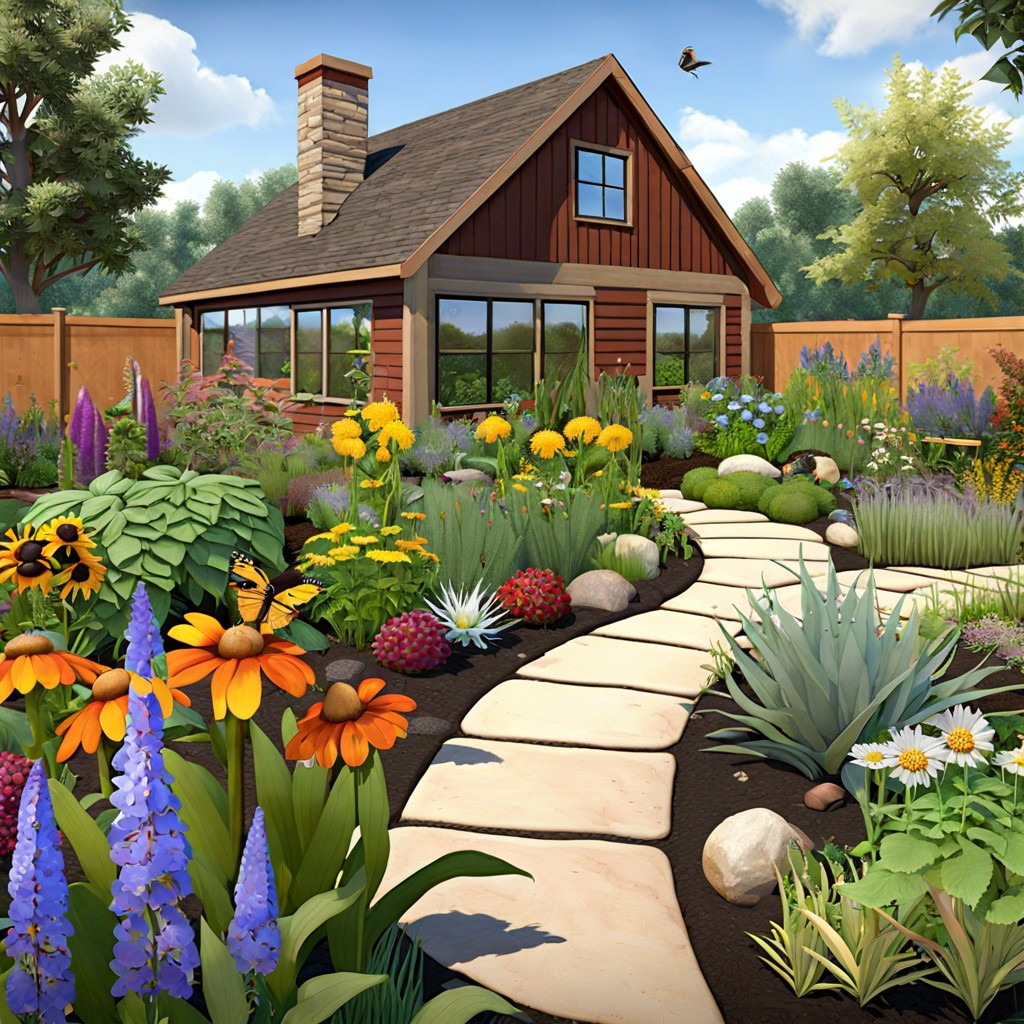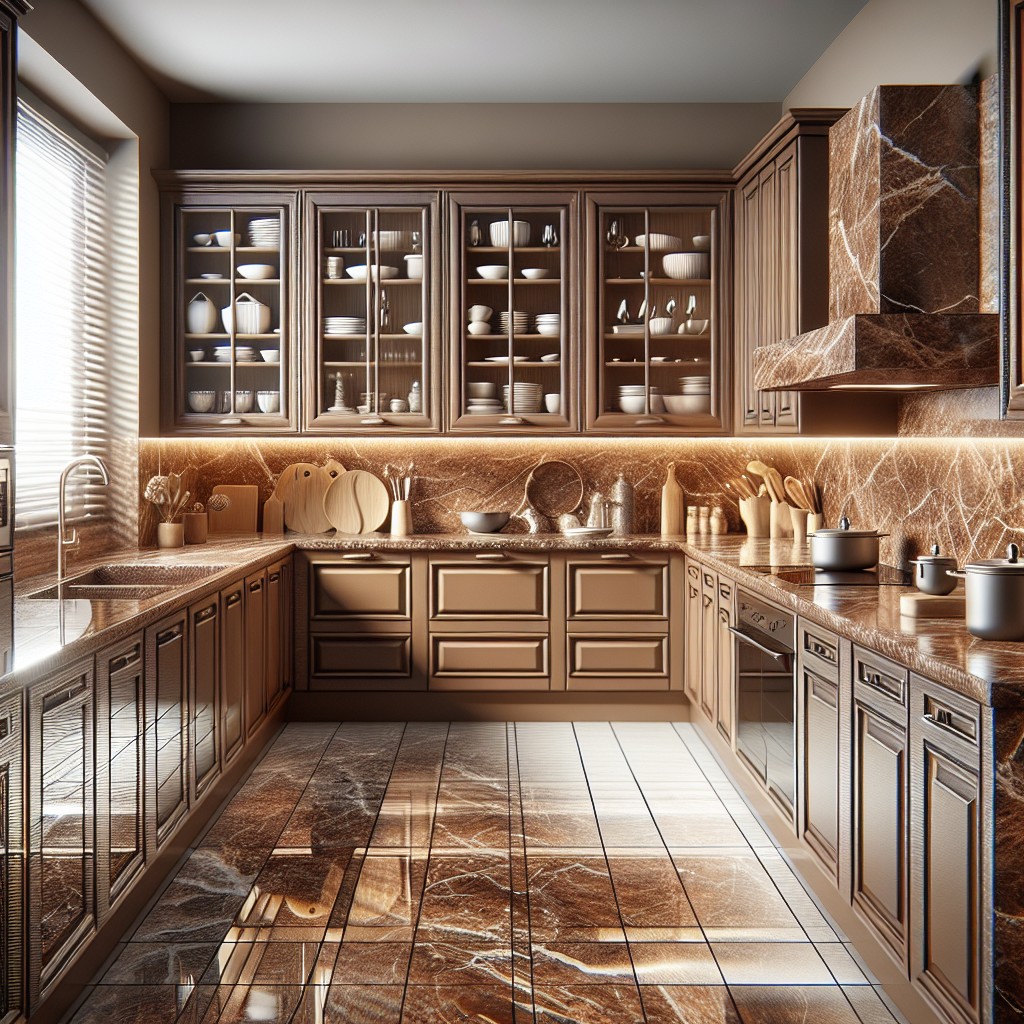Last updated on
Let’s explore the pros and cons of hardwood and tile flooring to help you make an informed decision for your home.
When it comes to choosing between hardwood and tile flooring, the decision can be tough. It’s like choosing between two childhood friends who have always been there for you – they both have their unique qualities that make them special.
I remember one particular client who was struggling with this very decision. She had just purchased a beautiful Victorian-style home with stunning architectural details and was torn between installing hardwood or tile flooring in her living room.
As we sat down to discuss her options, she shared with me how much she loved the warmth and coziness that hardwood floors brought into a space but also appreciated the durability of tiles.
It got me thinking about my own experiences with both types of flooring and how they’ve impacted my clients’ homes over the years. So let’s dive into this timeless debate of hardwood vs.
Tile flooring and see which one comes out on top!
What's Inside
Hardwood Flooring Pros
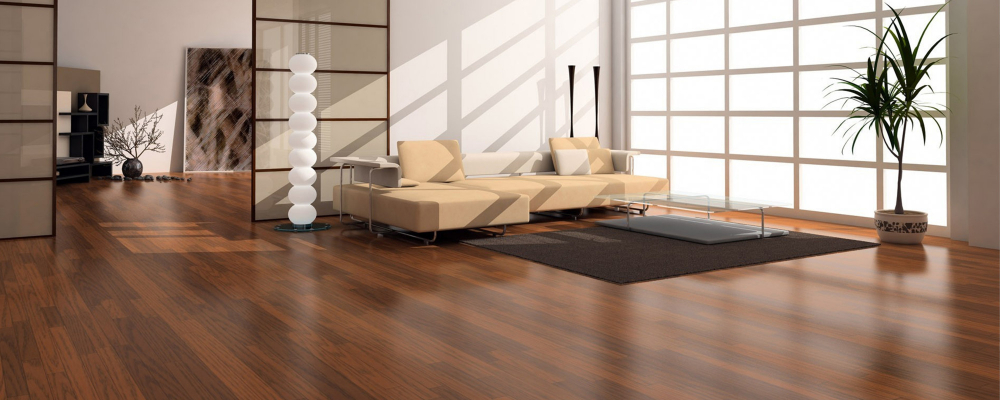
When it comes to hardwood flooring, there’s no denying the warmth and beauty it brings into a space. Hardwood floors have been around for centuries and continue to be a popular choice among homeowners today.
One of the biggest advantages of hardwood flooring is its durability – when properly maintained, they can last for decades without needing replacement. Hardwood floors are easy to clean and maintain compared to other types of flooring options like carpets or tiles that require regular deep cleaning.
Another advantage is their versatility in terms of style options – from traditional oak planks to modern engineered wood designs, there’s something for every taste and decor preference. And let’s not forget about the added value they bring into your home; installing high-quality hardwood floors can significantly increase your property value if you ever decide to sell.
If you’re looking for a timeless option that adds warmth and character while also being durable enough withstand daily wear-and-tear with ease- then look no further than beautiful solid or engineered wood planks!
Hardwood Flooring Cons
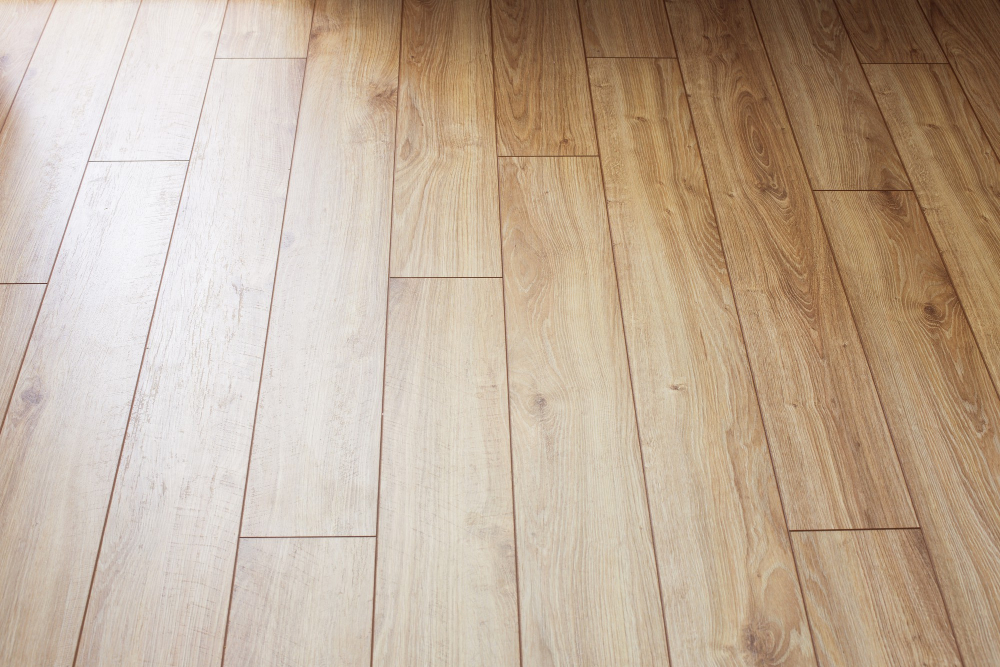
While hardwood flooring is a popular choice for many homeowners, it’s not without its drawbacks. One of the biggest cons of hardwood flooring is that it can be easily scratched or dented, especially in high-traffic areas.
This means that you’ll need to take extra care when moving furniture or walking around with shoes on. Another disadvantage of hardwood floors is their susceptibility to water damage.
If you spill something on your floor and don’t clean it up right away, the moisture can seep into the wood and cause warping or buckling over time. Installing hardwood floors can be quite expensive compared to other types of flooring options like carpeting or vinyl tiles.
And while they do add value to your home in terms of resale potential, this may not always outweigh the initial cost for some homeowners. While there are certainly benefits to choosing hardwood floors for your home decor project – such as their timeless beauty and warmth – it’s important to weigh these against any potential downsides before making a final decision.
Tile Flooring Pros
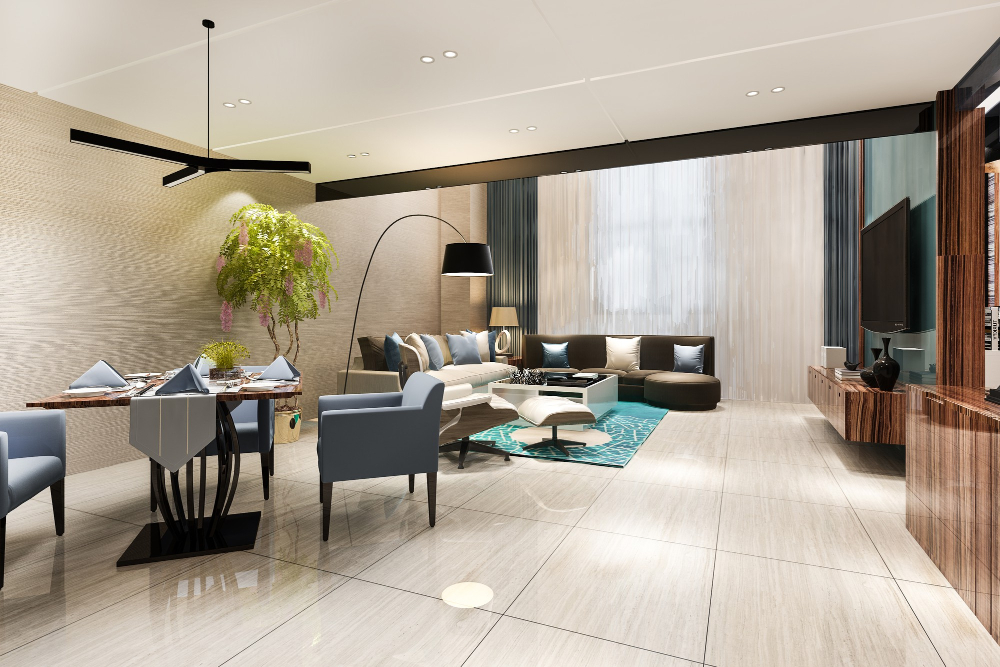
When it comes to tile flooring, there are many pros that make it a popular choice for homeowners. For starters, tiles are incredibly durable and can withstand heavy foot traffic without showing signs of wear and tear.
This makes them an ideal option for high-traffic areas like entryways or kitchens.
Another advantage of tile flooring is its resistance to moisture and water damage. Unlike hardwood floors that can warp or buckle when exposed to moisture, tiles remain unaffected by water spills or humidity levels in the air.
Tile floors also offer endless design possibilities with a wide range of colors, patterns, shapes, sizes available on the market today. Whether you’re looking for something classic like subway tiles or want to create a unique mosaic pattern using different colored pieces – there’s no limit to what you can achieve with tile flooring.
Lastly but not least important is the ease of maintenance associated with this type of floor covering; all you need is regular sweeping/vacuuming followed by mopping/wiping down as needed!
Tile Flooring Cons

While tile flooring has its advantages, it also comes with some downsides that homeowners should consider before making a decision. One of the biggest drawbacks of tile flooring is that it can be quite cold and hard underfoot, which may not be ideal for those who prefer a softer feel.
Tiles are prone to cracking or chipping if heavy objects are dropped on them or if they’re installed improperly.
Another disadvantage of tile flooring is that grout lines can become dirty and stained over time, requiring regular cleaning to maintain their appearance. This can be especially challenging in high-traffic areas like kitchens and bathrooms where spills and stains are more likely to occur.
Lastly, while there’s no denying the durability of tiles when properly installed by professionals; installation costs for this type of floor covering tend to run higher than hardwood floors due to labor-intensive work involved in laying each individual piece down correctly.
Overall though these cons shouldn’t deter you from considering tile as an option since many homeowners find its benefits outweigh any potential drawbacks depending on their lifestyle needs!
Durability Comparison
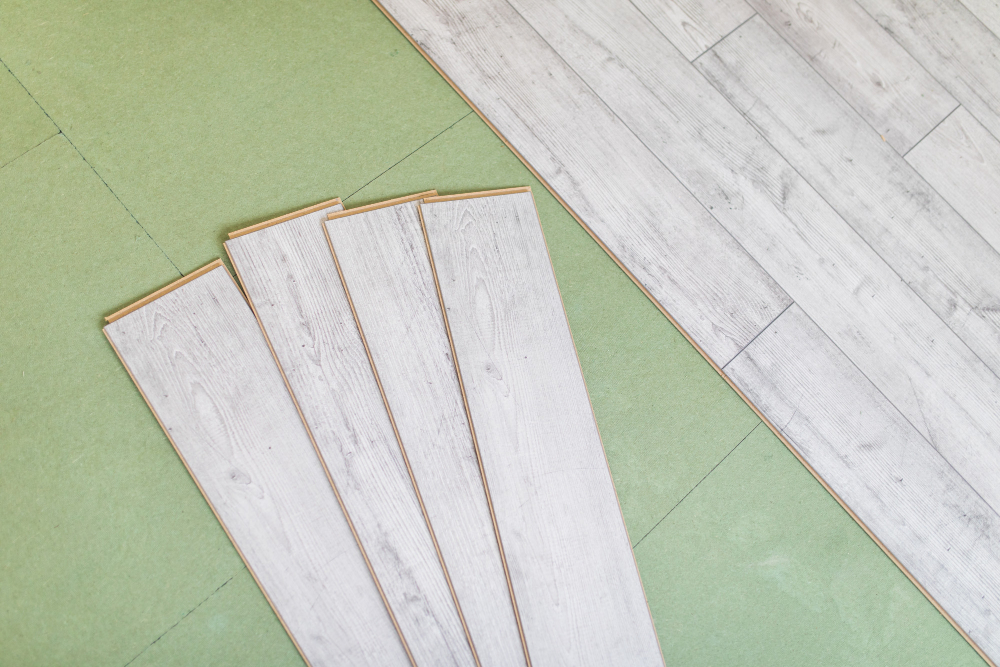
When it comes to durability, both hardwood and tile flooring have their strengths. Hardwood floors are known for their longevity and can last for decades with proper care.
They can also be sanded down and refinished multiple times, making them a great investment in the long run.
On the other hand, tile flooring is incredibly durable as well. It’s resistant to scratches, stains, moisture damage and won’t fade over time like some hardwoods do.
However, if a heavy object falls on it or something sharp hits its surface hard enough – tiles may crack or chip.
Ultimately when comparing durability between these two options – there isn’t necessarily one that is better than the other; rather it depends on your lifestyle needs & preferences. If you have kids running around with toys all day long or pets who love scratching things up then perhaps tile would be more suitable due to its scratch-resistant properties.
But if you’re looking for something that will stand up against wear-and-tear while still maintaining an elegant look- then hardwood might just be what you need!
Installation & Maintenance
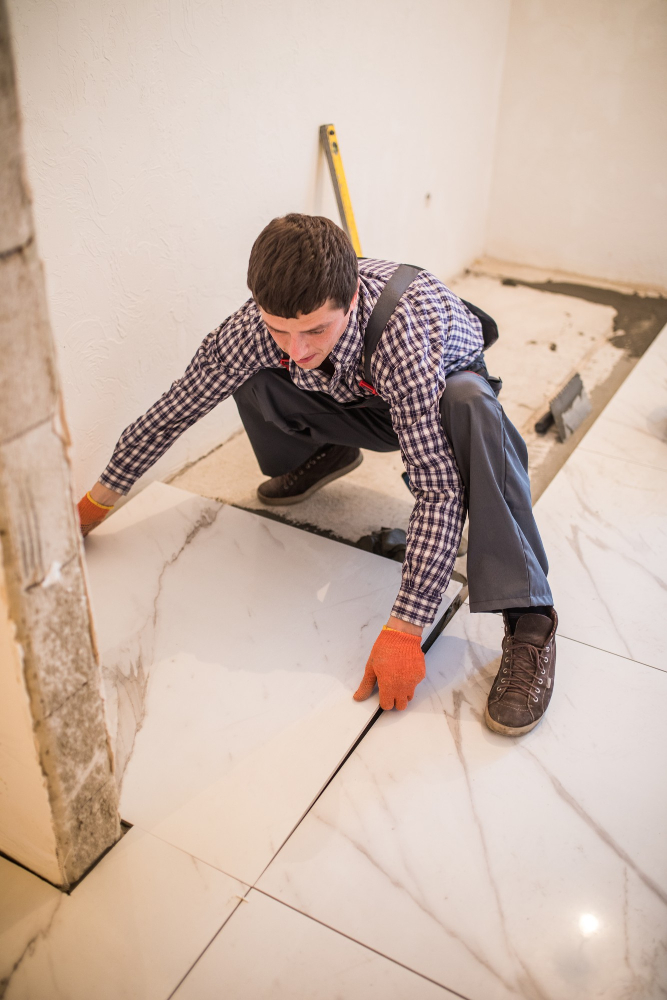
Once you’ve made the decision between hardwood and tile flooring, it’s time to consider installation and maintenance. Hardwood floors are typically nailed or glued down, which can be a lengthy process that requires professional installation.
On the other hand, tiles can be installed relatively quickly with minimal mess using thin-set mortar or adhesive.
When it comes to maintenance, both types of flooring require regular cleaning and upkeep. Hardwood floors need to be swept regularly to prevent scratches from dirt buildup while also being polished periodically for added shine.
Tiles require grout cleaning every so often as well as occasional resealing if they’re in high-traffic areas.
Both hardwood and tile flooring have their own unique installation processes and maintenance requirements that should factor into your decision-making process when choosing between them.
Aesthetics & Style Options
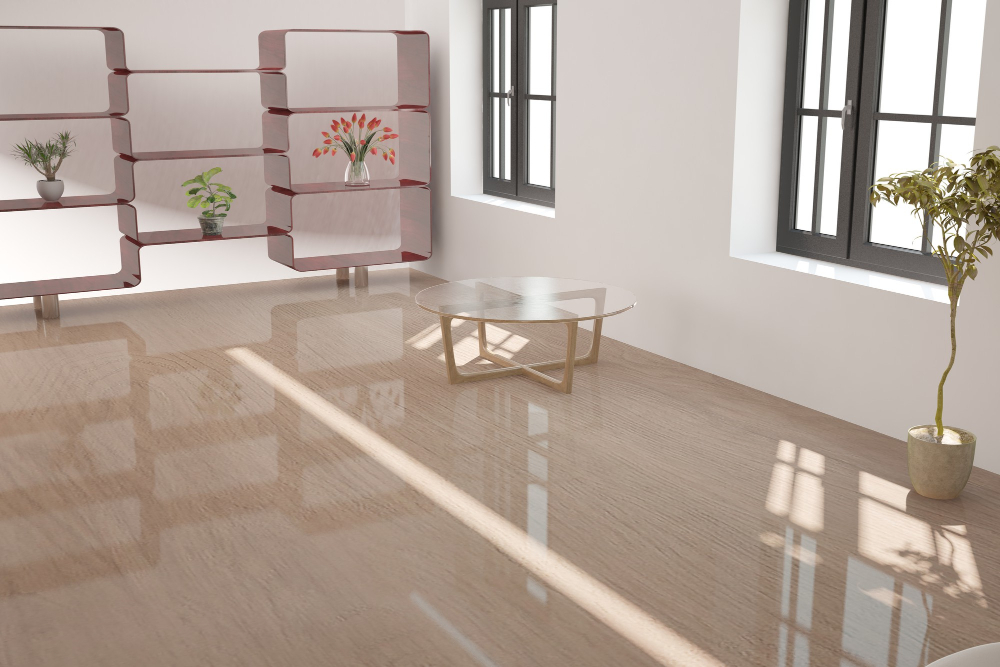
When it comes to aesthetics and style options, both hardwood and tile flooring have their unique appeal. Hardwood floors are timeless classics that add warmth, character, and elegance to any space.
They come in a variety of wood species such as oak, maple, cherry or walnut with different finishes like matte or glossy.
On the other hand, tiles offer endless design possibilities with an array of colors shapes sizes patterns textures that can mimic natural stone marble concrete or even wood grain. You can create intricate mosaics for a statement floor design or opt for large format tiles for a sleek modern look.
Ultimately your choice will depend on your personal taste decor style budget lifestyle needs and the overall aesthetic you want to achieve in your home. It’s important to consider factors such as lighting furniture wall color room size traffic flow before making any decision.
In my experience working with clients over the years I’ve found that combining both materials is also an option worth considering especially if you’re looking for contrast texture depth visual interest while maintaining functionality durability comfort underfoot sound insulation etc.
Cost Analysis

When it comes to choosing between hardwood and tile flooring, cost is a major factor that cannot be ignored. Hardwood floors are generally more expensive than tiles, both in terms of material and installation costs.
However, the durability of hardwood floors can make them a worthwhile investment in the long run.
On the other hand, tile flooring is often less expensive than hardwoods but can still provide an elegant look to any room. The cost of installation for tiles varies depending on factors such as size and complexity of design.
It’s important to consider your budget when making this decision but also keep in mind that investing in quality materials will save you money down the road by reducing maintenance costs or replacement needs.
Ultimately, whether you choose hardwood or tile flooring depends on your personal preferences and lifestyle needs. Both options have their pros and cons when it comes to aesthetics, durability, maintenance requirements as well as price points – so take some time before making a final decision!


